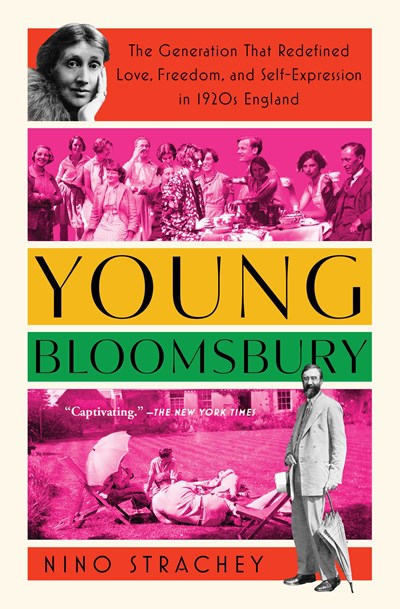Young Bloomsbury : The Generation That Redefined Love, Freedom, and Self-Expression in 1920s England
Young Bloomsbury : The Generation That Redefined Love, Freedom, and Self-Expression in 1920s England
Couldn't load pickup availability
By Nino Strachey
An “illuminating” (Daily Mail, London) exploration of the second generation of the iconic Bloomsbury Group who inspired their elders to new heights of creativity and passion while also pushing the boundaries of sexual freedom and gender norms in 1920s England.
In the years before the First World War, a collection of writers and artists—Virginia Woolf, E.M. Forster, and Lytton Strachey among them—began to make a name for themselves in England and America for their irreverent spirit and provocative works of literature, art, and criticism. They called themselves the Bloomsbury Group and by the 1920s, they were at the height of their influence.
Then a new generation stepped forward—creative young people who tantalized their elders with their captivating looks, bold ideas, and subversive energy. Young Bloomsbury introduces us to this colorful cast of characters, including novelist Eddy Sackville-West, who wore elaborate make-up and dressed in satin and black velvet; artist Stephen Tomlin, who sculpted the heads of his male and female lovers; and author Julia Strachey, who wrote a searing tale of blighted love. Talented and productive, these larger-than-life figures had high-achieving professional lives and extremely complicated emotional lives.
The group had always celebrated sexual equality and freedom in private, feeling that every person had the right to live and love in the way they chose. But as transgressive self-expression became more public, this younger generation gave Old Bloomsbury a new voice. Revealing an aspect of history not yet explored and with “effervescent detail” (Juliet Nicolson, author of Frostquake), Young Bloomsbury celebrates an open way of living and loving that would not be embraced for another hundred years.


